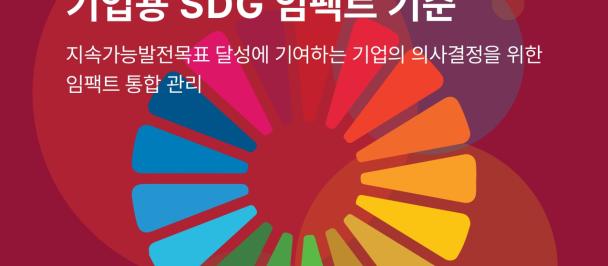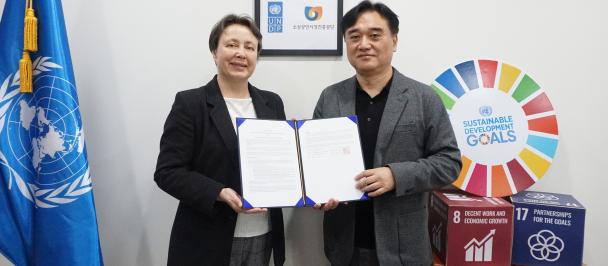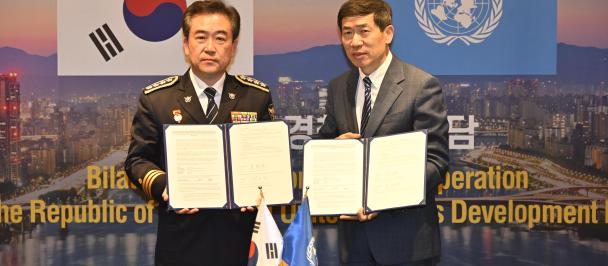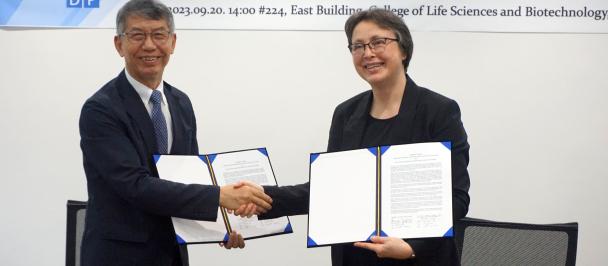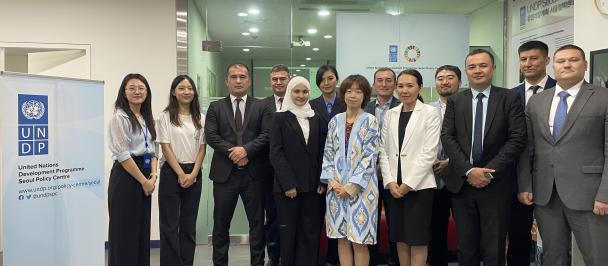UNDP Seoul Policy Centre (USPC) and UNDP Myanmar co-organized and participated in a three-day mission trip and training workshop on anti-corruption for members of 14 union-level ministries in Myanmar. An important component of the workshop was a discussion led by USPC on the Corruption Risk Assessment (CRA) tool of Korea’s Anti-Corruption & Civil Rights Commission (ACRC). As one of the key speakers, Mr. Euy-Whan Kim, UNDP Senior Anti-Corruption Advisor and former Director-General of ACRC, provided strategic advice on innovative anti-corruption policy tools and CRA implementation accompanied by Gichung Lee, USPC Policy Analyst.
CRA is a preventive anti-corruption mechanism that fosters effective and efficient, as well as transparent and accountable, citizen-oriented public administration. Since 2006, CRA has enhanced efforts to prevent corruption in Korea’s public administration through systematic identification of corruption risks in draft laws and regulations, as well as in existing legislations regarding the functions of public administration.
In 2018, Myanmar was selected as a partner country in USPC’s Development Solutions Partnership (DSP) on Anti-Corruption. The country’s recent efforts, including the establishment of the 12-member Anti-Corruption Commission (ACC) under the leadership of Chairman U Aung Kyi, demonstrates Myanmar’s prioritization towards enhancing transparency and fighting national corruption. One of the goals of the DSP has been to share and benchmark the experiences of ACRC and its CRA tools to support Myanmar establish their own anti-corruption mechanism. Webinar and study visit by Myanmar’s high-level officials and Members of Parliament to South Korea were conducted last year, in which ACC Chairman U Aung Kyi reaffirmed the organization’s keen interest in exerting all efforts necessary to adopt CRA to the local context.
The mission trip and training workshop was organized to help inspire and vitalize ACC’s momentum on the implementation of CRA mechanisms, while equipping Myanmar officials with necessary technical knowledge and policy insights through the dynamic exchange of knowledge and experiences. The mission trip began with bilateral meetings with ACC and the Union Attorney General’s Office (UAGO). The workshop agenda included CRA ”Practical Exercises”, which was facilitated by USPC and UNDP Myanmar, as well as multiple training sessions on effective strategies and methodologies for anti-corruption implementation based on Korea’s policies and experience. More than 100 participants from 14 union-level ministries engaged in interactive discussions on the importance of the CRA mechanism as a preventive approach to limit systemic corruption and the necessity of further localizing the tool to fit the context in Myanmar.
A debrief session was held in Seoul with the Director-General of the Ministry of Foreign Affairs (MoFA) later that week. The mission trip and workshop demonstrated the importance of effective cooperation of multiple government counterparts and organizations. As part of the DSP, USPC and UNDP Myanmar will continue to seek innovative ways to institutionalize the CRA mechanism to solve national corruption issues specific to Myanmar.
USPC is part of the Global Policy Network (GPN) that serves to capture knowledge, innovation, and best practices to support partner countries. DSPs strengthen and deepen this network by encouraging a triangular partnership between Korea, UNDP, and partner countries through their respective country offices. The Korean anti-corruption commission’s expertise and know-how serves as a key axis for sharing anti-corruption knowledge with partners countries, such as Myanmar, through USPC’s DSP.
USPC’s Development Solutions Partnership (DSP) is a programmatic approach to share Korea’s innovative policy tools with other countries through the UNDP’s global network for their attainment of the SDGs. In the period of 2015-2018, USPC has implemented a total of three full-fledged DSP projects on anti-corruption in Vietnam, Myanmar, and Kosovo, which share ACRC’s effective anti-corruption policy tools.

 Locations
Locations